Aspen Creek Digital Corporation's CEO, Alexandra DaCosta, and Andy discuss the transformation of Bitcoin mining through renewable energy initiatives. They address cryptocurrency benefits, energy consumption concerns, and the role of miners in promoting grid flexibility and sustainable power. The podcast delves into the future of US renewable energy, the significance of new power sources, and the potential of nuclear power and batteries for grid stability.
Moving towards a Greener Bitcoin with Renewable Mining
Alexandra DaCosta is the CEO and a founding member of Aspen Creek Digital Corporation, whose mission is to catalyze the decarbonization of power generation by creating the world’s leading renewable Bitcoin mining operator.
ACDC designs, develops, builds, owns and operates its own data centers that are powered by renewable energy sources such as solar fields.
Alexandra and Andy discuss the Bitcoin Mining industry and the various initiatives promoting clean, green Bitcoin mining for a more sustainable future for the most important alternative asset - Bitcoin.
The conversation touches on the perception of Bitcoin mining as an energy consumer but emphasizes the value that cryptocurrencies bring to society.
DaCosta also addresses concerns about Bitcoin mining's energy consumption, pointing out that it is not as significant as some may believe and that miners are often using renewable energy sources. He suggests that Bitcoin miners could be a valuable asset in promoting grid flexibility and transitioning towards more sustainable power sources.
The podcast discusses the future of renewable energy in the US and the role of bitcoin mining in clean energy. Alexandra believes that there is a bright future for renewables, and it's important to focus on standing up new renewable power sources rather than debating who should be in charge. She also sees a place for nuclear power and thinks batteries will be a game-changer for grid stability.
https://acdigitalcorp.com/
Andy Pickering - Host
You're listening to Pod99, a podcast by Wealth99 that helps the 99% take control of their financial future. We talk to experts from across the alternative asset space, who share their insights on new wealth, how to build it, and how to keep it. Let's get on with the show.
Today's guest is Alexandra De Costa. Alexandra is the CEO and a founding member of the Aspen Creek Digital corporation. And their mission is to catalyze the decarbonization of power generation by creating the world's leading renewable bitcoin mining operator. Very interesting. Welcome to the show, Alexandra.
Alexandra De Costa - Guest
Thank you so much for having me. It's a pleasure.
Andy Pickering - Host
So let's do what we do at the beginning. Alexandra, I'll invite you to please introduce yourself. I'd love to just hear a little bit about your background and personal or professional story in the lead up to you getting involved with the wonderful world of bitcoin mining.
Alexandra De Costa - Guest
Sure. So, the quick story, I'm originally from Toronto. I've been in the US. For longer than I'll probably care to admit, but I started my career on the fixed income side on Wall Street. So I spent almost 20 years in securitized products, asset finance, for better or worse. Went through a couple of those market bumps and then a few years ago ended up pivoting to focus on ESG and impact investing. So my road to crypto actually came from the ESG side, which is probably not something that most people can say, but started working with David Yee, who is our chief commercial officer and had previously been head of crypto banking.
And we started to look at bitcoin mining companies in particular that were utilizing, whether it was hydropower or kind of greener, if you will, means of powering themselves, and really starting to identify the actual power needs of bitcoin mining and trying to look at that as an opportunity as opposed to, I think the problem that a lot of people painted as. And so the way that AC DC came to be, and the way that my interest in this space came to be was, how do we solve the financial problems of bitcoin mining? How do we kind of zero in on that power cost and how do we use it as an opportunity to improve the power cost and stand up new power? And so it was through power that I had to jump down the bitcoin rabbit hole. And it's been quite a journey, but I'm really glad to be here.
Andy Pickering - Host
Okay, well, please tell us a little bit more about the Aspen Creek digital corporation. And I love the fact that you can abbreviate that to AC DC. That's quite clever. I do enjoy that. But just tell us a little bit about what the Aspen Creek digital corporation does. What is it, what's the origin story? And then we can talk about the vision and some of the specifics.
Alexandra De Costa - Guest
Sure. So the origin was really kind of from two sides. So as I've mentioned, half was the Wall Street side, half was looking at existing bitcoin mining companies and saying, what are they doing to really zero in on their cost of power and to really harness that. And the other half was, wow, these things use a lot of power. Can that be an opportunity as opposed to a problem? And can it be an opportunity to stand up new power? And it was through asking ourselves that question. It was actually being asked by renewable power developers, what can we use as an opportunity to stand up new power?
So if you look at our founding partners, our equity partners, there is a very deep bench of renewable power developers, both from Aspen Creek Power, but we work very closely with a wonderful company called Birch Creek. And these folks have stood up well over twelve gigawatts of renewable power in the United States over the last ten years. So these guys get it. And can we bring in this strange thing that we call bitcoin mining and introduce it to the very traditional stodgy solar folks and say, try this thing on for size?
It may not look as familiar, but it might be a really great opportunity to catalyze standing up these new renewables. And out of that wild idea was, to your point, a really wild name, AC DC.
Andy Pickering - Host
AC DC. Indeed. So tell us a little bit about how this works then, Alexandra. So I presume that you don't have all these renewably powered bitcoin mining centers locally in Aspen. Presumably you're working with different organizations around the US. And that's called colocation, I think. So just tell us how that works and who are the kind of people you work with and what are the kind of the fundamentals that are required to create a data center to mine bitcoin in a renewable way?
Alexandra De Costa - Guest
Sure. So we actually are vertically integrated through the data center. So that means that ACDC actually designs, develops, builds, owns and operates our own data centers. So the piece of the puzzle that we do not own and operate is actually the solar side. But in that case, we contract with our power development partners. And so through those partnerships, we have access to a renewable pipeline that is around three gigawatts. So just to give you some context, three gigawatts could power about 6 million homes, if not more. So it's a very large pipeline. And so went through and carved out a list of sites that would be appropriately developed for solar and then in some cases wind and battery, where we would specifically be the power purchaser for that site.
And so the idea is you are conceiving of the notion of power generation and power consumption at the same time. So instead of developing this solar field one side and then looking for someone to purchase it or purchase the power, I should say on day one, you know who your power purchaser is going to be, and that person is AC DC. And so on our side, what we do is we work with our power development partners who are our founding partners, and we seek these sites. And the sites we look for are obviously appropriate for solar, but they are also in locations that really enable us to be what we call behind the meter. So it means that we are physically plugging into our own power.
Now, you can do that anywhere, but depending on where you do it, the economics can be different. Some places, they charge you transmission fees, they charge you a toll even if you're taking your own power. We tend to operate in places that are a little bit more forgiving for our model. But to be clear, while we do plug into our own solar generation, we are always also plugging into the grid, not only so that we have the optionality to draw from the grid, but most importantly so that at certain instances, we can then transfer all of that solar back to the grid.
Andy Pickering - Host
Got it. If we zoom out a little bit. Alexandra, in my view, bitcoin is probably the most important alternative asset in the world. And I think every year more and more people come around to this way of thinking and perhaps start stacking away a little bit of bitcoin themselves as they come to the same realization. However, I'm sure you're very aware, especially coming from an ESG background yourself, there's a characterization of bitcoin around the world as an energy consumer, right in a negative way, and especially in the early days when a lot of mining was done perhaps in China, and a lot of mining still is done in China. Some of it is renewables, like there's a lot of hydro mining, but there's still a perception that bitcoin is chewing up dirty energy, if you like.
Greenpeace has, I think it's called change the code, a campaign against bitcoin. And this is due to bitcoin mining. They're not necessarily against bitcoin as a decentralized cryptocurrency, but they're certainly against the proof of work mining mechanism which requires energy. Elizabeth Warren, just today, actually this morning on twitter, announced an anti crypto campaign. So, look, this is big picture stuff, but I just wonder, with these kinds of narratives, organizations such as AC DC are a part of the narrative to kind of try and wave the flag for energy positive bitcoin mining, right?
Alexandra De Costa - Guest
Yeah, it's a great question, and there's a lot to unpack there. I think that there are a couple of key points that you've made, and the first one is the acknowledgment that crypto is here to stay. And I think that the recognition of the value that it is bringing to society, and I think that is where we really need to begin this conversation. And obviously that's probably for another podcast, and there's hundreds of hours about it already. But I come from the TradFi, traditional finance background, and I'll be honest, I was not an early adopter of bitcoin because I was so used to the system in which I was working. And then you start recognizing the value that the bitcoin blockchain brings, and you start even if you don't want to use it as a store of value, right?
Let's just say gold is your thing, that's fine. But when I, as a business operator, look at the margins, the incremental margins that I have to pay, for example, just to pay, let's say, a power bill to the grid, right? Someone has to do that metering that has to pass through a processor, that has to get to the person that then invoices me, that has to then come to me. And you look at all of the people that are paid in order just to get your bill. And so you're looking at that margin, and then the 60 day turnaround time between the day that the power was read and then the day that my money actually lands back there.
And then you think about using the lightning network, and you think about being able to settle that transaction instantly and daily if you want. And then all of a sudden, let's just put bitcoin aside and say, as a business operator, doesn't that sound like a better way? And so I think that there's two things, right? Let's look at the fact that it's getting harder and harder to say ban bitcoin or crypto is just a fad, right? Maybe that was easy. And look, there's a lot of things, a lot of coins I'm not so sure about. They're either beyond my comprehension or maybe I just don't have time to understand. But I think when we look at bitcoin, we need to start approaching it from the perspective that it's real.
To your point, we can call it an asset, we can call it a currency, whatever you want to call it, but it is growing in popularity and for good reason. And you look at the events of the last few weeks in the banking industry, and even for better reason, right? This monetary policy that is 80 to 100 years old needs to evolve just like everything else is evolving. So once we put that to bed, we can then start looking at the energy consumption of bitcoin mining and not looking at it through a lens of, well, if we ban it, we'll just stop that. We have to look at it through the lens of, it's not going anywhere. So what do we do about it? Well, there's a couple of things in my mind.
First of all, bitcoin mining uses about 0.2% of the world's energy. So, first of all, I don't think it's as gargantuan as everyone leads us to believe, right. We can talk about the energy uses of the existing financial structures, and I would argue using a lot more to power these banks. So we'll leave that one on the side. But I think what's really interesting here is it's been very convenient to call out bitcoin mining for its energy uses and how dirty it is, and yet bitcoin miners, I'm going to use America because that's where I mine, and I so I have a better understanding of the grid. We're plugging into the exact same grid as everybody else.
So is the criticism about bitcoin mining's power draw about bitcoin mining, or is it a criticism about the existing makeup of our grid? I think that's kind of the bigger question, because bitcoin miners are not seeking out the filthiest energy sources possible. Are some kind of strapping on to dying coal plants? Yeah. Would I prefer they didn't? Absolutely. I don't think that we need to be using bitcoin as a crutch for dying industries. However, for the most part, we're plugging into the exact same grid, and I don't see a lot of people complaining about the energy usage of chemicals. Right? I mean, manufacturing is 81% of the US. Grids utilization. Chemicals are 37% of that. When was the last time Elizabeth Warren complained about chemical manufacturing? So I think that it's really frustrating, that being said.
And then I'll end my rant. I think to my initial point, we have an industry that is ripe with intelligent, really flexible, I will say individuals, because we're constantly pivoting through these markets, and we're constantly, frankly, under this barrage of regulatory purgatory, right? I mean, we have no real oversight even when we ask for it. And so here we have come out and continue to innovate. Why are we looking at this group of people and not going, these guys actually might be able to be the answer to a lot of our grid problems. And I think that's exactly what our company is trying to do.
If you have this thing that some folks call the raccoon of the energy world, which I kind of love when you think about it, like, bitcoin miners scrounging around for the best scraps, if you see how unbelievably innovative they are, in seeking out the cheapest power possible. Why aren't you following them? Why aren't you watching how they're doing that interconnection, how they're structuring those contracts, how they're being really kind of wily and take a page out of that book and say, what else could act that way? That's how we look at it.
Andy Pickering - Host
I like that. The raccoon of the power grid scrounging around for the best possible power. And I think when you're talking about it reminds me because in some cases, bitcoin miners and I think this happened in Texas, which is kind of close to your neck of the woods, Alexandra. They had those terrible storms maybe a year or two ago. And bitcoin miners are very nimble, aren't they, in those situations where they can kind of plug in and out of the grid depending on network demand, and actually, in those cases, strengthen the power grid over time.
Alexandra De Costa - Guest
Right, exactly. I actually literally just hung up a call with those fine folks at Ercot before joining you. We have a site operational in Texas. It is an 87 megawatt solar with a 30 megawatt data center. So we always have 57 solar going directly to Houston. And we are about to embark on our third site. Our first is in Colorado, our second site in Texas, which is 150 megawatt data center, co located behind the meter with 200 solar. So we're very familiar with Texas, and you're right. You see the data coming out of Ercot in particular, which is its own enclosed power network. And bitcoin miners are doing exactly what we say we can do, which is turning on and off. If you look at our company, we are newer. We became operational in the late fall of 2022 at our Texas location.
And there were some really cold days and winter storms that hit Texas around Christmas time. We turned off for four days straight. We powered about 10,000 homes in the Houston area. That's great. Now, we would have powered more if we had a larger solar development, but that's our size. And so there are a lot of folks that say, well, come on, you're not doing it for altruistic reasons. You're doing it because it's economically a good idea. Yeah, I don't see a lot of businesses doing anything for other reasons, so there's that. But the fact of the matter is the demand from bitcoin mining for this power and when you look at how much power is looking and waiting in line to turn on, it is driving the demand side of the renewable power development.
And I think that's a really important factor here, is that you're right. Bitcoin mines are the most flexible. There are not a lot of large scale power consumers that can turn on and off within minutes. Usually aluminum smelting plants, you're looking at a few hours. And so when you have a grid, any grid in the world that is making this transition from fossil fuels to renewables that are more intermittent, that have like in Texas, ten gigawatts of solar during the day, then the sun sets at the same time everyone's turning their EC on to come home. That's something that we need to figure out how to handle. So having a load that can also flex is really valuable while we're waiting for the grid to continue to mature, to absorb the very thing we want, which is more renewables.
And so I think it's really interesting that folks have been very quick to say, well, bitcoin miners are just doing it for the money and they're probably making power prices worse in the meantime because they're those raccoons eating up all the power. Well, the other thing you're seeing right now in Texas is gigawatt upon gigawatt of new renewable power trying to be stood up to answer that very demand. And I think that's the dirty little secret that a lot of people don't want to talk about right now, and I pull this from my old ESG and infrastructure life, is that you look at bills like the IRA right now out in the US. Where we're funneling billions of dollars into renewable power development. And that's great, that's my world. But you only cover the supply side, you haven't covered the demand side.
And unfortunately, existing large scale consumers of power haven't really found a way to integrate as seamlessly as we would hope with renewable power. We're getting there. But tell an auto plant, tell GM to be run 100% on solar and they'll say, what the h*** what am I going to do when the sun sets and batteries are getting there but we're not quite there. And so right now you've got your friendly bitcoin miner who's actually teaching you how we can behave in the meantime.
If you're not really sold on bitcoin, then think about it as a really interesting science experiment that's teaching us a lot about grid flexibility that we can start applying to a lot of other areas in the economy.
Andy Pickering - Host
Yeah, it's fascinating, isn't it? And it just reminds me, Alexandra, you can look at bitcoin from so many different angles and there are so many different rabbit holes that you can go down and learn all sorts of philosophical things about the nature of the planet, humanity, governance and the future. But as we start to finish off this part of the podcast, then, Alexandra, here are two big questions about the future. Let's just stick to the US. Really, because that's probably easier for this discussion. Is the US on path to keep bringing on different renewable power sources all around the country and eventually making that transition to green energy as nuclear, even part of that equation? And I guess secondly, what is the future of bitcoin mining? And can it transition to net positive clean energy mining?
How far away are we from that? When does the narrative shift begin? I know these are big questions, but yeah. Interested in your thoughts?
Alexandra De Costa - Guest
Sure. So I think to answer the first question about the future of renewable in the country, I actually think it's a really bright future. I think very candidly, that we need to do it for the right reasons. And the reason is that the future of our planet depends on it. Put politics aside. And so I think what is unfortunate, and this loops into the bitcoin mining side, is that you have this debate, this altruistic debate about the best use for that power and oh, God forbid bitcoin mining be consuming any of it. Well, if it's acting as the catalyst to stand up that new renewable power, I mean, in our company's case, we'll be standing up over three gigawatts.
We've got 97 MW up in under a year, as one company when most people are just trying to do a friends and family fundraise and get their website going. And so there is massive opportunity in it and if we can maybe stop focusing on who should be in charge of what gets to be used and instead let's just stand this up, let's upgrade our transmission lines. And I think that's where the politics is going to become really complicated is that renewable power is so intertwined with politics. It does have to cross state lines, it does have to go through people's backyards and it is going to have to be decided where that power gets consumed. And most importantly, it's going to be a bumpy road. Right. There's nothing smooth about the energy transition.
And so if we see Blips right now on the radar about all of these electric vehicles being charged in California are just adding to California's grid strain. I told you electric vehicles are bad. It's like no, it's a process. So what do we do to help smooth that out? And I think that's where we need to not give up and really focus on what the end game is, which is more renewables. You can do it for environmental reasons. You can do it because you want less reliance on foreign energy. Right. It doesn't actually matter what your reason is. The fact of the matter is we have to start having more control over our power. And I do think that there's a place for nuclear energy in that.
I don't know if that makes me popular or unpopular, but I look at the work that breakthrough energy is doing and obviously with Bill Gates at the helm, there are a lot of really smart people there in nuclear and there's some really interesting companies coming out. Commonwealth Fusion Systems is one to really keep an eye on. I mean, they're already big. So I'm not blowing a secret here, but looking at new types of fusion and fission and nuclear reactors is going to be really interesting to have kind of stars on Earth. And so I think that there's just really exciting things coming out of power, but we have to recognize that there are going to be bumps in the road in order to get us there. And so then what does that mean for the future of bitcoin mining?
Some folks say right now that 66% of power input into bitcoin mining is renewable. That's because you're looking at a cross hatch of the power draw of these states in which bitcoin mining is in. That's actually a really good number. Right? And it makes sense because you're seeing bitcoin mining in places like Washington state, you're seeing it in Texas, you're seeing it in Georgia where there are nukes and there's solar. I think that there's an opportunity to continue to grow that number, especially as bitcoin miners seek to exert greater control over the power that is going into their sites like we are. And I think that they're recognizing that just drawing from the grid isn't giving your advantage and that maybe contracting for your specific power is the way to do it.
I think batteries are really going to be the game changer not just for bitcoin mining, but for grid stability in general. And that's going to be really exciting. And I think most importantly there, how do you fund them? So when all of these tax exemptions run out, will the cost of batteries just come down as the green premium continues to come down? Or again, are you going to be looking at things like bitcoin mining that have maybe a shorter return on investment than other industries seeking to deploy technologies like batteries?
Andy Pickering - Host
Yeah, it's so interesting. Alexandra, thank you so much for sharing your insights there. And I really agree. I think really as we've seen this year with the incredible advances in these large language models powering these AI interfaces that are just opening up new ways of working and gathering knowledge and increasing your productivity. And what is doing that? It's technology, right? And I think technology is driving the same thing with these batteries. Obviously, Elon Musk is doing incredible things with what does he call them? The gigabattery? Yeah, those massive battery initiatives that he is running. And of course the fusion stuff that you're talking about, you used a phrase something like building mini stars on earth, which is such a powerful idea. If we can get these incredible clean energy, unlimited clean energy generating little mini stars on earth, it's just wild stuff.
But I think all of that is coming down the line in the years ahead. So really exciting. Thank you, Alexandra. Let's go to a very quick break and then we'll come back and we'll just finish off with some Wealth 99 podcast insights into building and holding onto wealth.
Alexandra, I like to finish off each podcast with just a quick discussion about wealth, new wealth, how to build it and how to keep it. And you obviously come from a traditional financial background, so you probably have a little bit of insight here.
Just got some quick questions for you. I guess the first one is, can you think of one piece of financial knowledge that should be taught at schools to help empower young people?
Alexandra De Costa - Guest
Alexandra wow, that's a great question. Well, honestly, it's such a simple one, but the piece of knowledge that needs to be taught is really about saving, but also how to learn how to invest. And I know that's probably too broad of an answer, but I think it's making sure that you have ownership over your own assets. And I don't mean you have to manage them themselves, just in the same way that if you have an auto mechanic that takes care of your car, do not be afraid to seek outside counsel to have someone help you do that if that's not something that you can do.
But I think that early on it needs to be taught to have that, even if it's not intellectual curiosity, the responsibility to manage that which that you are amassing or hoping to amass and not just think I'm saving it. So that's a good thing. And I think that's something that I needed to learn sooner than I did, there's a difference between saving and then saving and making it grow for you. And so however you have to do that, and I think people don't maybe understand, especially at a young age, that you don't have to do it yourself, that there is a way that you can really, I think, get help to do that, but not doing anything about it is not going to do anyone any good.
Andy Pickering - Host
Yes, I very much agree. And of course, one thing that's changed perhaps since you and I were at school, it's not enough just to say save in dollars these days, because if you just save in dollars, your money is just going to be eaten away by inflation. And of course, that's one argument for bitcoin. Bitcoin is simply the best savings technology ever invented, certainly in the long term. All right, next question. Alexandra again, just simple stuff, but if you were, say, like leaving school, say around 17 or 18 years old and just leaving school, what's one thing you would do to try and secure your financial future?
Alexandra De Costa - Guest
There's what I did and there's what I probably would have liked to do. And so what I did was I worked. And I know that's a very obvious statement, but I would have really liked to make a bit of money and then travel and really see the world. But I perhaps was a little too afraid of what would happen if I didn't start saving. And so I think that, look, even if you're 17, you're 18, get the jobs and then take an interest, like I said, in what happens with that money. And so, honestly, you may or may not make it big by investing in a couple of stocks, but what you will do is you will start to train yourself to pay attention, and you will start to take ownership over that. And I think that's a massive, massive deal.
Compounding interest is the most magical phenomenon in the world. And, yes, I know that there's inflation, and we always need to diversify with one day, ideally, properties and bitcoin and gold and all of these things. But at the end of the day, if you look at the charts, if you invest even a little bit super early on and it grows a tiny bit, that compounding interest will do wonders. And so I personally am glad that I worked and that even odd jobs and I saved. But I wish that I had encouraged myself to become a more active participant in my future, my investing future. And that's why I say, if you don't feel comfortable even doing it with one stock, find someone that will put it in an ETF.
But you pay attention to a game when you actually like one of the home sports teams, right? So buy $20 worth of stock and force yourself to pay a little bit more attention.
Andy Pickering - Host
Got to have some skin in the game. I very much agree. All right, next question. Alexandra, in 30 seconds or less, what is the bull case for bitcoin?
Alexandra De Costa - Guest
There's a finite amount produced. You can't print your way out of this one.
Andy Pickering - Host
I love it. All right, same thing. 30 seconds or less. What is the bull case for gold?
Alexandra De Costa - Guest
There's still enough of the population that values the gold standard, and it is a liquid commodity. And most importantly, it is traded on regulated exchanges. It's not living in this grey space that, unfortunately, a lot of crypto continues to live in. So there's a lot of security in that.
Andy Pickering - Host
I like it. All right, thank you so much for sharing some insights with us today, Alexandra. I have very much enjoyed talking to you. Please tell people where they can go to learn more about AC DC, the Aspen Creek digital Corporation.
Alexandra De Costa - Guest
Sure. So if you want to learn more about us, we are online acdigitalcorp.com. We are on LinkedIn Aspen Creek Digital Corporation. On Twitter, we are @acdc_hq. Or you can find me, @alex__dacosta.
Andy Pickering - Host
There you go. How good was that? That was Alexandra de Costa from AC DC, the Aspen creek digital corporation, but of a different show, but always good, I think, to learn more about the wide world of bitcoin. As I said during the show, there's so many different angles that you can approach bitcoin from, and obviously, here at Wealth 99, our primary focus is investment, investing in bitcoin, and of course, other crypto assets and tokenized, precious metals and so on, but we're talking about bitcoin right now, investing for the long term. And, yes, if that is your focus, all good. That's a good thing. That's what you should do. But of course, there are other important factors that are involved with bitcoin, and of course, one of those factors is very simply, bitcoin mining.
So as much as you don't necessarily need to go all the way down the bitcoin mining rabbit hole because,, it's another deep and complex rabbit hole. But it is good to hear from different experts in their field, such as Alexandra today, and learn a little bit more about what people like her are doing to help ensure that the future of bitcoin mining is green. Because that is so important for the future of bitcoin, because, as we've learnt, the likes of Greenpeace and Elizabeth Warren really are pushing back on bitcoin and on crypto. And one of the biggest attack vectors is dirty bitcoin mining. So if we can get more clean, green bitcoin mining happening in the US, and all around the world, it's good for the planet, it's good for bitcoin, and it's good for investors. Simple as that, folks.
All right, thank you very much for listening, team. I hope you learned something. I hope you enjoyed the show. That is it for today. Thanks very much and bye for now.













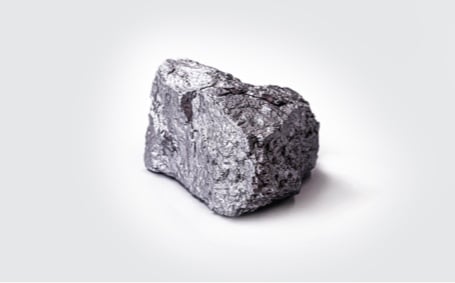
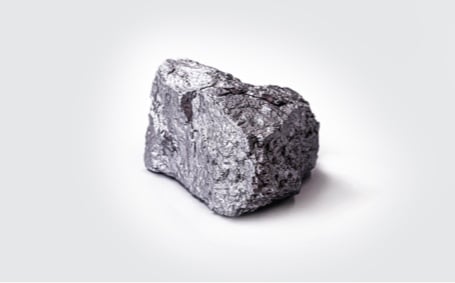






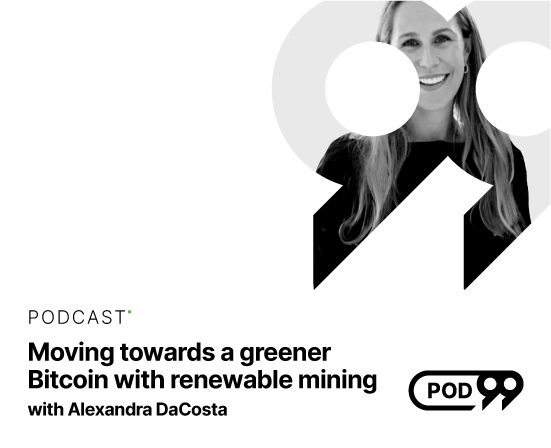


.svg)
.svg)
.svg)

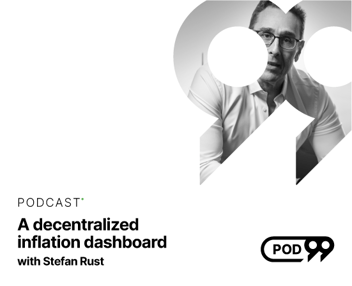
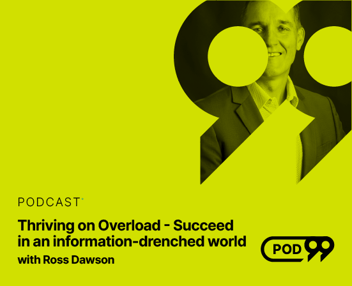
.png?width=352&name=Wealth99%20podcast%20Website%20thumbnail-Jamie%20Finn%20(1).png)